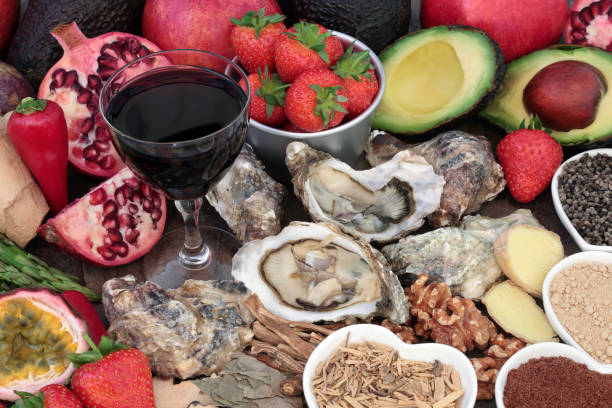How much onion is too much? Let’s Find Out…
Table of Contents
Introduction
Onions are a versatile and flavorful addition to countless dishes around the world. They provide depth of flavor, aroma, and nutrition to your meals. However, like many foods, onions should be consumed in moderation.

In this blog post, we will explore the benefits and potential downsides of onions in your diet and answer the question, “How much onion is too much?”
The Nutritional Powerhouse
Onions are not only known for their culinary appeal but also their impressive nutritional profile.
They are rich in essential vitamins and minerals, such as vitamin C, vitamin B6, potassium, and folate. Additionally, onions are a great source of antioxidants, including quercetin, which has been linked to various health benefits.
How Much Onion Is Too Much

How much onion is too much has been a frequent question I do get, I will start by saying eating too many onions can lead to digestive discomfort for some individuals due to the presence of fructans, which may cause gas and bloating. Additionally, an excessive intake of onions can exacerbate bad breath and potentially trigger or worsen heartburn and acid reflux symptoms in susceptible individuals.
Therefore it is advisable to eat 50 to 80 grams of Onions per day and anything above that is considered too much. source
Moderation is Key
While onions offer numerous health benefits, consuming them in excessive quantities may lead to some downsides.
Here are a few factors to consider:
- Digestive Distress: Onions contain fructans, a type of carbohydrate that can cause digestive issues for some individuals. Overconsumption of onions may lead to gas, bloating, and discomfort. If you have a sensitive stomach, it’s essential to monitor your onion intake.
- Bad Breath: We’re all familiar with the pungent odor that onions can leave on your breath. Eating too many onions can exacerbate this issue, potentially leading to social discomfort.
- Heartburn and Acid Reflux: Onions are known to relax the lower esophageal sphincter, which can trigger or worsen heartburn and acid reflux symptoms in some people.
- Risk of Allergic Reactions: Rarely, individuals can have allergies or sensitivities to onions, which may result in adverse reactions when consumed in excess. Pay attention to any signs of allergies, such as itching, hives, or difficulty breathing.
Can too much onion lead to digestive discomfort?
When explaining “How much onion is too much”, we mentioned that Consuming excessive amounts of onion can lead to digestive discomfort, especially for those with sensitive stomachs. Onions contain fructans, a type of carbohydrate that can cause gas and bloating. To avoid discomfort, moderate your onion intake and consider cooking them to reduce their fructan content.
What are some creative ways to enjoy onions without consuming too much?
If you’re an onion enthusiast looking for ways to enjoy them without overdoing it, consider these creative ideas:
Onion jam: Slow-cook onions with sugar and vinegar to create a sweet and savory condiment.
Pickled onions: Pickling onions can mellow their flavor and make them a delightful addition to sandwiches and salads.
Roasted onions: Roasting onions with other vegetables can bring out their natural sweetness and reduce their pungency.
Onion powder or flakes: Use these alternatives sparingly to add onion flavor to your dishes without the strong aroma and taste of fresh onions.
Finding the Right Balance
Now that we’ve discussed the potential downsides, it’s important to highlight that onions can be a part of a healthy diet when consumed in moderation. Here are some tips to help you strike the right balance:
- Portion Control: Aim to include a reasonable portion of onions in your meals. A small to medium-sized onion can provide plenty of flavor and nutrients without going overboard
- Cooking Methods: Cooking onions can help reduce their pungency and make them more digestible. Sauteing, caramelizing, or roasting onions can mellow their flavor and make them easier on the stomach.
- Listen to Your Body: Pay attention to how your body reacts to onions. If you notice digestive discomfort or other adverse effects, consider reducing your onion intake.
- Variety is Key: Diversify your diet by incorporating various vegetables and flavors. This can help you avoid relying solely on onions for flavor and nutrients.
How Eating Onions Can Benefit Your Health

Eating onions can significantly benefit your health in several ways, making them a valuable addition to your diet. Here are some key health benefits of incorporating onions into your meals:
- Rich in Antioxidants: Onions are packed with antioxidants, including quercetin, which helps combat free radicals in the body. These antioxidants may help reduce the risk of chronic diseases, such as heart disease and certain types of cancer.
- Heart Health: Onions contain compounds that can lower blood pressure and improve heart health. They may help reduce the risk of heart disease by lowering levels of LDL cholesterol (the “bad” cholesterol) and increasing levels of HDL cholesterol (the “good” cholesterol).
- Anti-Inflammatory Properties: The antioxidants in onions also have anti-inflammatory properties. They can help reduce inflammation in the body, potentially alleviating symptoms of conditions like osteoarthritis and inflammatory bowel diseases.
- Digestive Health: Onions contain dietary fiber, which aids in digestion and helps maintain a healthy gut. Fiber promotes regular bowel movements and may reduce the risk of constipation.
- Immune Support: Onions are rich in vitamin C, which plays a crucial role in supporting the immune system. A strong immune system helps your body fight off infections and illnesses.
- Cancer Prevention: Some studies suggest that regular consumption of onions may be linked to a reduced risk of certain cancers, such as colorectal and stomach cancer, thanks to their antioxidant and anti-inflammatory properties.
- Blood Sugar Regulation: Onions have been shown to help regulate blood sugar levels, making them a potentially beneficial addition to the diet of individuals with diabetes or those at risk of developing the condition.
- Respiratory Health: Onions contain compounds that may help improve respiratory health by reducing the severity of symptoms in individuals with conditions like asthma and chronic obstructive pulmonary disease (COPD).
- Bone Health: Onions contain calcium, which is essential for maintaining strong and healthy bones. Adequate calcium intake is crucial for preventing osteoporosis.
- Improved Skin and Hair: The antioxidants and vitamins in onions can contribute to healthier skin and hair. They may help combat skin aging and promote hair growth.
Is there such a thing as too much onion in a salad?
While onions can provide a delightful crunch and flavor to salads, excessive amounts can be overwhelming. For most people, half a medium-sized onion is a good starting point. However, adjust based on personal preference and the other ingredients in your salad.
Onions are undoubtedly a valuable addition to your diet, offering a wide array of health benefits and enhancing the taste of your meals. However, like many foods, moderation is crucial.
By finding the right balance and paying attention to your body’s cues, you can enjoy the benefits of onions without experiencing the downsides of excessive consumption. Remember, a well-rounded diet is the key to a healthy lifestyle, so don’t put all your onions in one basket!






